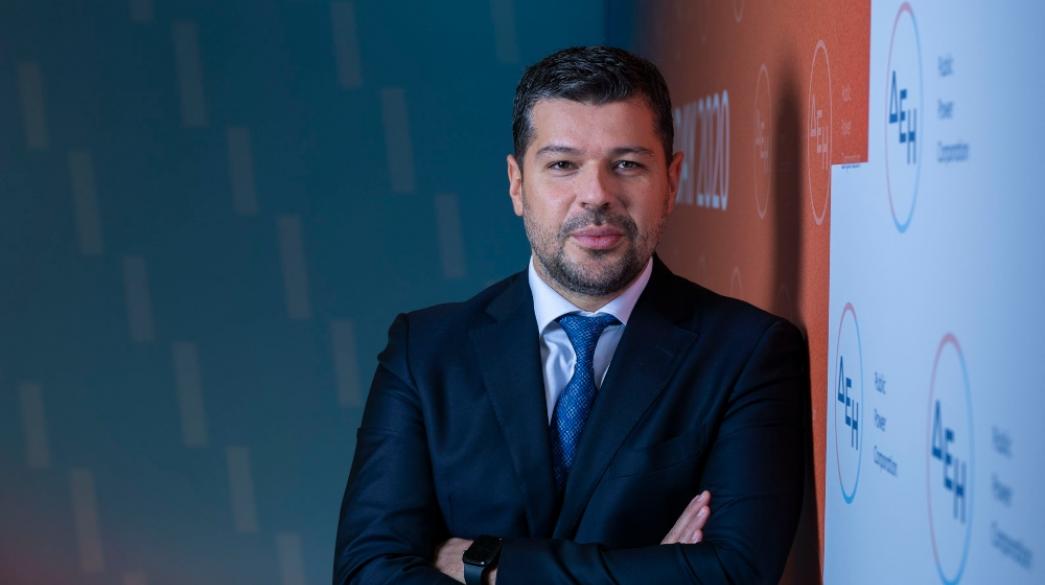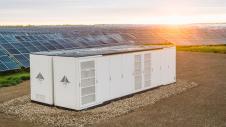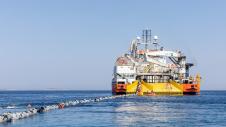In front of 200 investors and analysts from all major investment houses, PPC's management presented yesterday in London its development plan for the three-year period 2024 - 2026. Development that is not limited to Greece, but also in Romania, with the acquisition of Enel Romania and in Bulgaria with the acquisition of renewable energy plants in the near future.
The objectives defined are the following:
- Total installed capacity of 13.1GW in 2026 from 10.7GW today without the presence of lignite and with the participation of RES at 68% from 43% today,
- EUR 9 billion of investment over the three years, with an EBITDA target of EUR 2.3 billion in 2026 (EUR 3 billion in 2030),
- net profit between EUR 700-800 million.
- Targets that are ambitious but which analysts describe as realistic. This is because, unlike in the 2020 business plan, PPC now has mature renewable energy projects, not zero as in 2020, but also calculable revenues from Enel's distribution networks in Romania. Of the 2.3 billion estimated EBITDA in 2026, 19% will come from the distribution networks in Romania.
The contribution of the HEDNO and alliances in RES
Also, for HEDNO - and depending on the wacc given - management expects additional EBITDA of EUR 200-300 million by 2026. There will also be drastic cost savings from the reduction of the company's carbon footprint, but analysts say the benefits will come not so much from cost reductions, but from the wholesale prices the company will receive from renewables. Essentially, we are talking about a new business model, as 68% of power generation in 2026 will come from renewables, 19% from natural gas and only 13% from fuel oil, while lignite will be completely absent.
Achieving the target of 8.9GW of installed RES capacity in 2026 will also be helped by the strategic alliances PPP has entered into with Intrakat (2.7GW), RWE (2GW) and Motor Oil (2GW). Also, the plan envisages that by 2026 PPP will have 1.1GW of installed RES capacity in Bulgaria, presumably from acquisitions in the next period.
Investments with a focus on renewables will be 3.4bn in 2024, 3.1bn in 2025 and 2.5bn in 2026. Of the 9bn, 62% will be invested in Greece and 38% abroad. The investments will be financed from the group's cash flow and from borrowing, 80% of which has been secured. The group currently has 2.5 billion in liquidity with 52% being cash and 48% open lines of credit.
Borrowing, electrification and fibre optics
Management is confident of strong cash flow for this and maintains that despite the increase in borrowing from the 'heavy' investment programme, the net debt to EBITDA ratio will be 3.3x, just one above today.
In electricity supply, PPC estimates that in 2026 it will have a market share of 45% in Greece (up from 56% today) and 18% in Romania with a stable EBITDA of €500m. From electric charging stations the company expects an annual EBITDA of EUR 50 million, through investments of EUR 110 million by the end of the decade.
Regarding fiber optic networks, PPC is moving ahead with its plan to create a Fiber to the Home network nationwide, based on the competitive advantage of fast deployment of the new network at low cost through the use of existing infrastructure. The investment in fibre will reach 680 million euros with the use of cheap borrowing from the Recovery Fund. By 2030, PPC aims to have 1 million users from this activity (wholesale), revenues of EUR 120 million and EBITDA of EUR 100 million.
Management reiterated that 35% of the 2023 net profit (around EUR 200 million) will be distributed in 2024, with this figure rising up to 55% in 2026.









